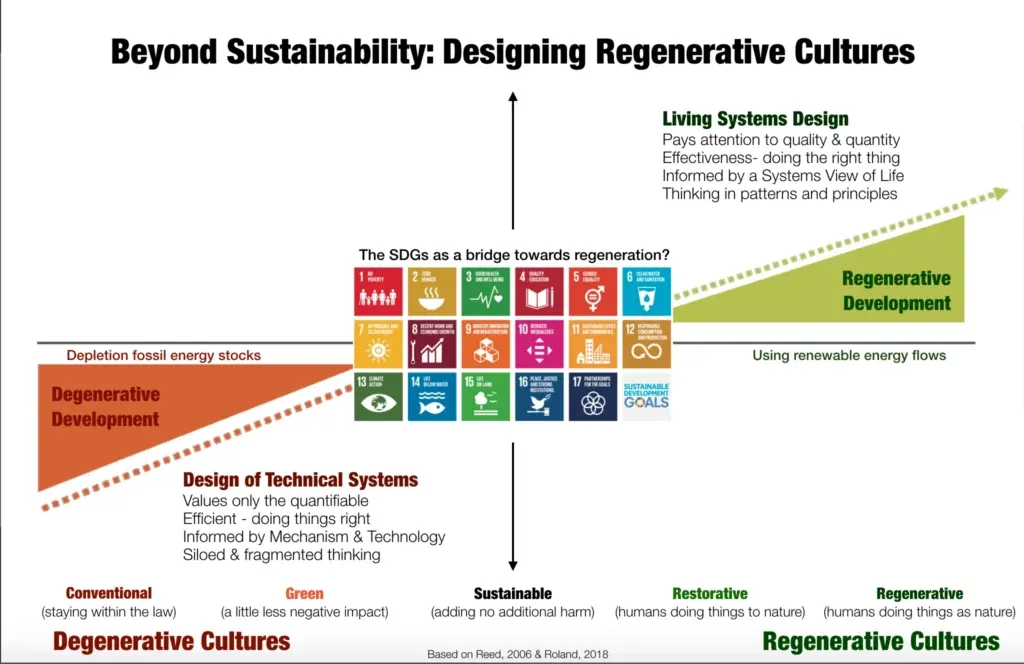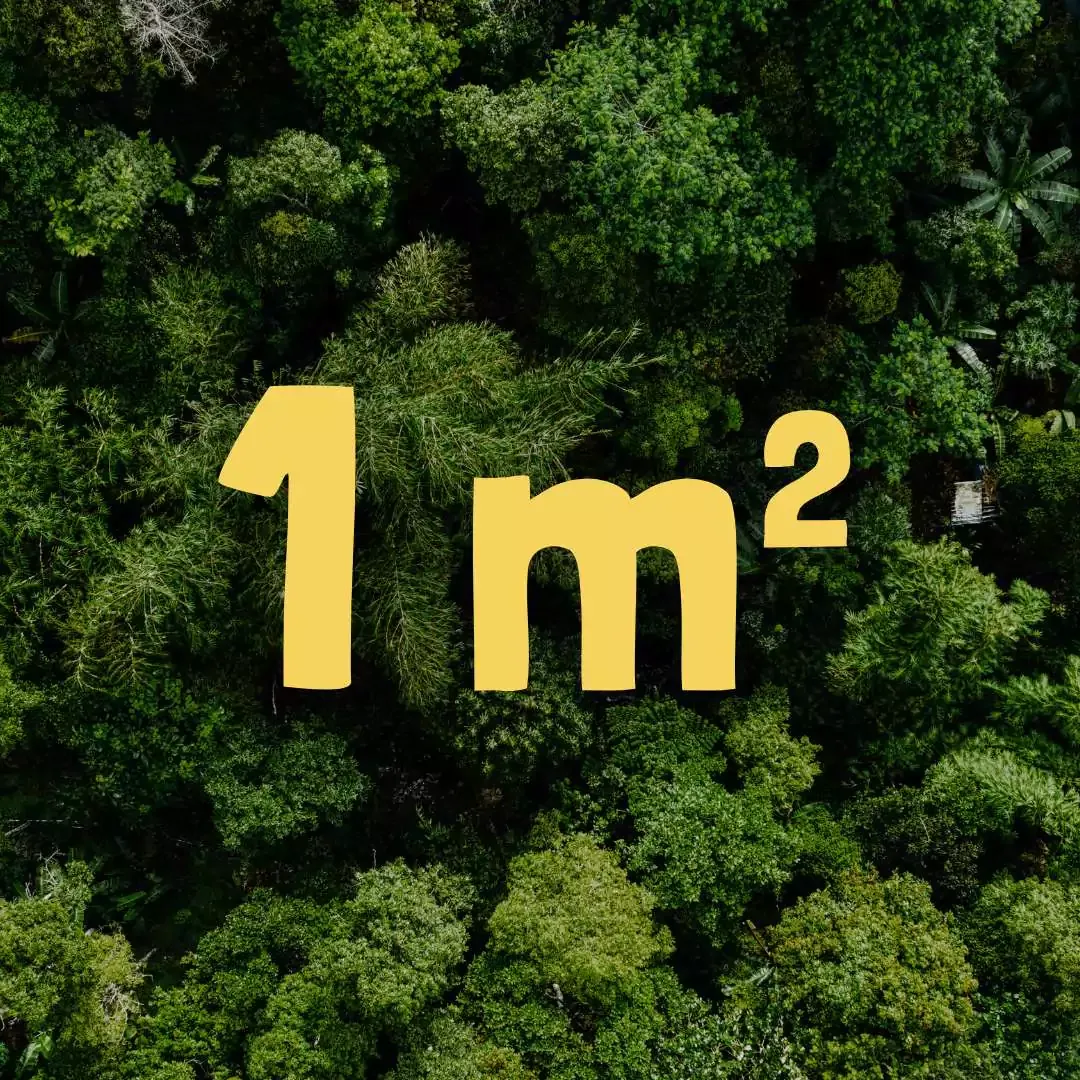Table of Contents
In today’s world, the idea of sustainability is essential for promoting new economic and social standards and trying to change how humans interact with the environment. However, despite the tremendous efforts made to become more sustainable, we discover that the world is at a stalemate and that environmental conditions are not improving.
The ideas of sustainability and regeneration, as well as their effects, are discussed in this article. Understanding their differences is essential to comprehending both concepts’ contributions and limitations, as well as the best way to approach these ideas to have a significant positive impact on society and the environment.
Sustainability is one-half of the solution.
Sustainability, in a broad sense, refers to the ability to maintain a process over a period of time. In an environmental context, it seeks to avoid the depletion of natural resources to maintain an ecological balance. As such, sustainable values can be related to being able to solve current problems without creating new ones in the future. Creating a balance that gratifies the present without jeopardizing the future While this course of action is quite reasonable, it may not be the best course of action. This is because sustainability as a concept focuses more on causing less damage than creating more good.

Notable sustainability actions are usually geared towards reducing waste, curbing toxic emissions, and switching to renewable energy, all of which revolve around curtailing our negative impact and actions on the environment, polluting less, and using fewer natural resources. The fact is, despite how effective it’s been thus far, these ideas and actions are simply not enough for a number of reasons. Some of these are the facts that climate change is not experiencing significant positive change, certain organizations have taken to “greenwashing” while claiming to be sustainable, and resources are getting scarcer, largely because the process involved is unsustainable.
Another noteworthy point is that consumers regard the concept of sustainability as being overly passive. While the concept of sustainability has an actionable premise, consumers have preferred the idea of doing more good rather than just attempting to do less harm. According to one study, approximately 80% of US customers preferred regenerative products over sustainable companies.
Regenerative sustainability; taking actions that count.
Regeneration is a more actionable approach to our planet’s current environmental problems. The concept of regeneration is a step beyond sustainability, focusing not only on preventing harm, but also replenishing and regenerating what has been lost. Building on the core of sustainability, regeneration is a concept that seeks to create socio-economic relationships that are focused on repairing and replenishing. Whereas a sustainable organization works to reduce its ecological footprint, a regenerative business seeks to increase its social and economic impact by restoring the health of people, communities, and the planet.
Sustainable solutions are fixated on maintaining the systems without further damage, slowly trying to reduce their impact. A study shows that 75% of the Earth’s land area is already degraded. With this much damage done, sustainability as a singular approach is simply not enough. Regenerative models recognize the current state of social and environmental damage, acknowledging that if we stopped at this point, it would be difficult for things to recover. This is why “reconciliation” and “restoration” are key factors in regeneration. In taking a regenerative approach, we create solutions that assist in the restoration of damaged ecosystems, while individuals understand that they have a more active than passive role to play.

Much like sustainable strategies and models, regenerative models aim for long-term value accrual rather than short-term gratification. Beyond doing no harm, a regenerative approach creates a system that shows a significant positive trend in the present and shows the potential for an even greater positive impact in the future.
Regenerative sustainability is a holistic approach to socio-economic and environmental problems. The transition from the fragmented approach of doing no harm to migrating towards a model that offers more by doing more good is the leap that consumers and industries need to make. To achieve a significant change in our planet’s environmental predicament, there has to be a change in the existing relationship between humans and the planet. The role of organizations and governments is to raise awareness to the point where individuals now see that sustainability is only half of the solution.
Bottom Line.
The rise in regenerative ideologies does not hold back the concept of sustainability, rather, it gives credence to the idea.
Regenerative sustainability as a concept is working to not just “do no harm,” but “do more good” as part of the solution.
Sustainability is the foundation required to ensure that regenerative actions are not for nothing. The merging of both concepts is vital if we are to see a real and positive turnaround in areas that are in dire need of it.
The growth of strategies that combine sustainability and regeneration is vital for economies, communities, and the planet. These models and strategies will find it easier to grow on the foundation of sustainability, which has become a common concept. Regenerative programs will be more proactive and create the opportunity for tangible actions that will have a more glaring impact on communities and the environment.




